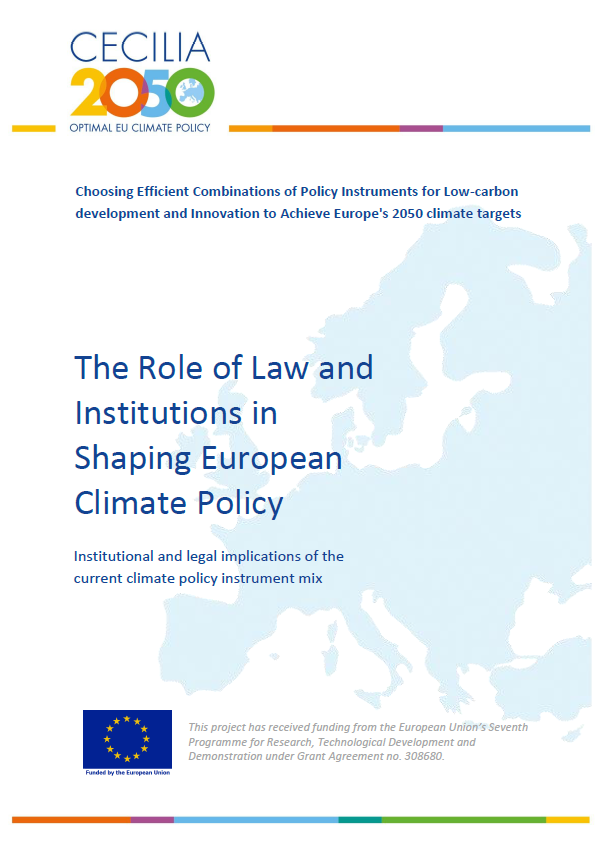Current EU Climate Policy: An Optimality Assessment
CECILIA2050 Policy Brief No 1
- Publication
- Citation
Consortium, CECILIA2050 Project 2013: Current EU Climate Policy: An Optimality Assessment.
The European Union (EU) and its Member States are debating the shape and substance of future EU climate policy. With partners from the CECILIA2050 project, Ecologic Institute produced reports on 8 EU Member States and the EU as whole, which take stock of current policies and their performance. In all 9 cases, the policy mix currently in place can be improved. A Policy Brief summarizing the findings is available for download.
Background
The EU has set for itself the long-term target to reduce emissions by 80-95% by 2050 (from 1990 levels), which implies in essence a decarbonisation of most economic sectors in just over three decades. The project Combining Policy Instruments to Achieve Europe's 2050 Climate Targets (CECILIA2050), funded by the European Commission, DG Research & Innovation, assesses the performance of the existing climate policy mix, and maps pathways towards future climate policy instrumentation for the European Union, with a prime focus on economic instruments.
The CECILIA2050 team produced reports on the current climate policies of the EU Member States Czech Republic, France, Germany, Italy, Netherlands, Poland, Spain, and the United Kingdom, and the EU as whole. The policies are evaluated against a specifically elaborated definition of optimality, which extends beyond the application in classical economics, and integrates real-world constraints. It includes three core criteria:
- (climate) effectiveness,
- (economic) efficiency,
- and feasibility
Results
The case studies showcased a number of individual policy instruments that were deemed to be superior to others in terms of their "optimality" as defined by this project. There were three types of measures that stood out in that respect:
- feed-in tariff systems for renewable energy support (e.g. DE, ES)
- loan schemes to support energy efficiency improvements (e.g. CZ, F)
- pricing tools, such as environmental taxes (e.g. UK)
Bringing together the results from the case studies, the editing authors at Ecologic Institute, Benjamin Görlach and Matthias Duwe distilled the insights that are most widely applicable and relevant to the debate on future policy design:
- Lesson 1: Optimal policies need acceptance and buy-in to enhance feasibility
- Lesson 2: Optimality in a changing world requires both stability and flexibility to learn
- Lesson 3: Optimal policies require a long-term perspective
- Lesson 4: Carbon pricing is not a panacea, but it needs to be a crucial part of the policy mix
- Lesson 5: EU level harmonisation can improve efficiency, but must not stifle regional and local action
The policy brief [pdf, 2.8 MB, English] is available for download.







